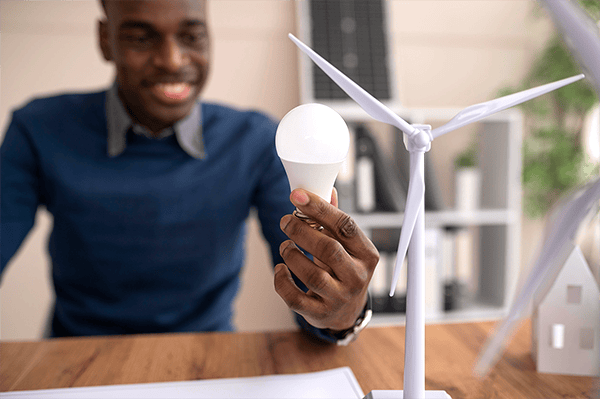
Africa is on the cusp of a transformation that promises to redefine its cities, communities, and economies. The rise of renewable energy is not only powering homes and businesses but is also shaping the future of real estate across the continent. From solar panels and wind turbines to geothermal and hydropower innovations, renewable energy is driving sustainable development, reducing environmental impact, and creating opportunities for investors and developers alike.
At the heart of this transformation lies the growing demand for green, energy-efficient buildings that reflect the realities of a rapidly urbanizing continent. With a population expected to double by 2050, Africa is facing an urgent need for housing and infrastructure—yet traditional energy sources and construction practices cannot sustainably support this growth. Renewable energy is emerging as a solution, revolutionizing the real estate sector in ways that benefit both the environment and the economy.
Powering the Future: Renewable Energy as a Foundation for Sustainable Development
Renewable energy has long been seen as a key to addressing climate change, but its role in reshaping real estate is just beginning to take center stage. Africa's abundant sunlight, wind, and geothermal activity position the continent as a prime location for harnessing renewable energy. In real estate, the integration of renewable energy into building designs is becoming a game-changer. Developers are increasingly incorporating solar panels, wind turbines, and geothermal heating systems into residential and commercial properties, reducing dependence on grid electricity and cutting energy costs for homeowners and tenants. This is particularly significant in regions where access to electricity is unreliable or where power outages are frequent.
Take, for instance, the rise of solar-powered housing developments in Rwanda, Kenya, and Ghana. In these communities, homes are designed with rooftop solar panels that not only supply energy for daily needs but also allow homeowners to sell excess power back to the grid. This decentralized approach to energy generation ensures that households can maintain a consistent power supply while contributing to the overall energy infrastructure.
Affordable, Accessible, and Environmentally Friendly
One of the most significant benefits of renewable energy in real estate is the potential for affordability and accessibility. The costs of solar panels and other renewable technologies have dropped dramatically over the past decade, making it easier for developers and homeowners to invest in sustainable solutions. For many African countries, where energy prices can be volatile and access to traditional electricity grids is limited, renewable energy offers a way to lower costs and provide affordable, off-grid power solutions.
In urban areas, developers are creating eco-friendly, energy-efficient buildings that cater to a growing middle class looking for modern, sustainable housing. Green buildings, which incorporate features like solar energy, rainwater harvesting, and energy-efficient appliances, are becoming more attractive to buyers and investors. These homes not only reduce utility bills but also contribute to a cleaner environment, making them a smart investment for the future.
At the same time, renewable energy is opening up opportunities for rural development. Off-grid solar systems and mini-grids are providing electricity to communities that were previously without power, enabling the construction of schools, healthcare facilities, and businesses in remote areas. This access to energy is fostering economic growth and improving the quality of life for many people, and may also encourage sustainable building practices in places where traditional infrastructure is scarce.
Real Estate Investment in Africa's Green Future
For investors, the intersection of renewable energy and real estate in Africa represents a unique and exciting opportunity. The demand for sustainable housing and energy-efficient buildings is on the rise, particularly in fast-growing cities like Kigali, Nairobi, Lagos, and Cape Town. As governments across the continent implement policies to promote renewable energy and reduce carbon emissions, the real estate sector is poised to benefit from increased investment in green developments.
Developers are also finding that sustainability is not just good for the environment but also for business. Properties that incorporate renewable energy solutions are increasingly commanding higher market values, attracting buyers and tenants who are willing to pay a premium for eco-friendly, energy-efficient homes and offices. In addition, renewable energy projects are often eligible for incentives and financing from international organizations, further reducing the financial burden on developers.
The Road Ahead: A Sustainable Future for African Real Estate
As Africa continues to urbanize and develop, the real estate sector will play a critical role in shaping the continent’s future. Renewable energy offers a pathway to creating cities and communities that are resilient, sustainable, and economically vibrant. By integrating clean energy into housing and commercial developments, Africa is laying the foundation for a future that prioritizes both people and the planet.
At Fortis Green Holdings, with our investments in renewable energy (Fortis Green Renewables) and now Fortis Green Housing, we are proud to be part of this movement.
The future of real estate in Africa is green—and the opportunities are endless.

